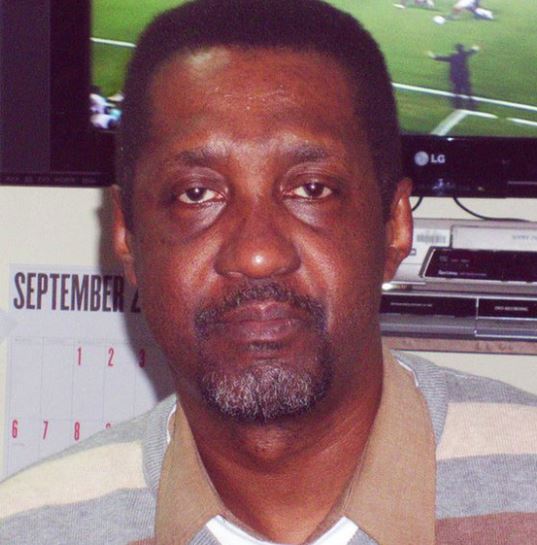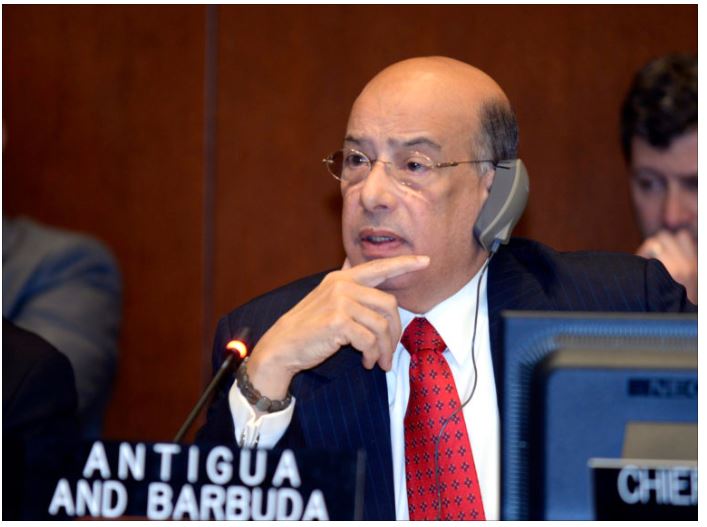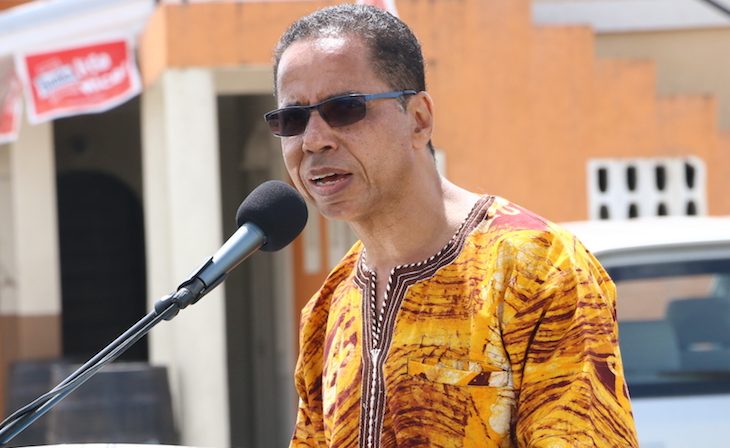By Mike Jarvis
There are calls in the UK for a full inquiry into the ‘Windrush immigration scandal’ affecting numerous Commonwealth Caribbean nationals who have been living in the country for decades only to be told now that they are illegal migrants.
They are facing deportation. Some have already been held at pre-departure detention centres. Others are said to have been deported although the British government says it has no information to support that claim.
In the latest twist to the still unfolding drama, it has now emerged that British official were advised three years ago against destroying the arrival records of thousands of Caribbean nationals who came to the UK between 1948 and 1971.
That information is vital in proving when they arrived in the country.
They are the so-called Windrush generation who came into the country on their parents’ ‘British subjects’ passports, who were answering the call from ‘the mother country’ for labour in Britain’s post-war rebuilding.
But gradual changes to UK immigration rules over the years, and a massive intensification in 2014 in the Brexit referendum campaign literally switched them from being legal to being illegal.
It’s widely accepted that the Brexit campaign was fuelled by unfounded fears that the UK was being overrun by migrants.
Although the principal targets were Eastern European migrants and hordes then assembled in squatter camps in Calais, France aiming to enter the UK – by whatever means – the Windrush generation got swept up in a widely cast net.
The 2014 changes initiated by British Prime Minister Theresa May while she was Home Secretary, saw a rapid escalation of the UK’s immigration clampdown.
Job losses, withdrawal of access to healthcare, and other social services have many of the Windrush generation in a state of limbo and stressful uncertainty.
Apologies earlier this week from Prime Minister May and her successor as Home Secretary, Amber Rudd, are at risk of now ringing hollow in the wake of further questions over how the matter has been handled.
Both said they were “genuinely sorry for any anxiety that has been caused”, sentiments which are now being perceived as being too carefully to avoid further embarrassment and possibly exposing the British government to legal claims for redress.
The Home Office has hastily been reassuring those affected to contact it for free processing to have their British citizenship rights reviewed or reinstated.
“We recognise that this is causing problems for some people who lived in the UK for most of their lives. We want to help you to get the documents to prove your right to live here and ask that you contact the Home Office so we can help you do this. No one with the right to be here will be required to leave the UK – we will find a solution for your particular situation.”
But the advice on the UK government’s website also cautions:
“This page is not a substitute for immigration advice. You can find out how to contact an immigration adviser on GOV.UK. If you have difficulty affording legal advice you may wish to contact Citizens Advice.”
It’s clear that those caught up in this quagmire are not in the clear yet despite the assurances given by the Prime Minister and Home Secretary.
Mrs May said she wanted to “dispel any impression that my government is in some sense clamping down on Commonwealth citizens, particularly those from the Caribbean who have built a life here”.
A plan to review these cases over the next two weeks doesn’t seem to go far enough.
The contrast could not have been more stark.
Commonwealth Games celebrated ‘a family of nations’ and the theme for the leaders’ summit is ‘Towards a common future’.
Those laudable ideals tend to run counter to the intent and reality of the 2014 to 2016 immigration rule changes and the current bite of their reality.
That Commonwealth Caribbean ‘British’ are once again ensnared in a web that some might say wasn’t quite intended for them is worth examining.
The tightened immigration processes between 2014 and 2016 were put in place as a direct political response in the heated and acrimonious debate in the run-up to the UK’s 2016 ‘Brexit’ referendum.
Immigration was at the core, though not necessarily from the Commonwealth Caribbean where the numbers incoming are small by comparison.
In her apology on Tuesday, Prime Minister May pledged to right the wrongs and
committed to compensate those left out of pocket by the experience. That includes people who have lost their jobs as their employers faced penalties for having ‘un’- or ‘inadequately- documented workers on the payroll.
The ongoing rolling revelations and disclosures are threatening to overshadow this week’s Commonwealth Heads of Government Summit in London, the first time the British capital is hosting it in four decades.
Mrs May profusely apologised to her Caribbean Commonwealth colleagues during a meeting at her Downing Street office.
While her apology has been accepted in diplomatic statesman-like fashion by the Caribbean leaders, the rumblings for restitution from among their ranks are growing in intensity.
In addition to coinciding with this week’s Commonwealth summit, the confluence of events could not have been more unfortunate.
The United Kingdom April 2018…
…the Windrush Commonwealth Caribbean ‘British’ citizens deportation scandal
…the first Commonwealth Heads of Government Summit in London in 40 years. The theme is Towards a Common Future.
…the Commonwealth Games for the ‘family’ of 53 nations with around 2.4 billion people
…25 years since the racist murder of black teenager Stephen Lawrence. A subsequent inquiry deemed the London Metropolitan Police then to be ‘institutionally racist’.
…50 years since the April 1968 racist Rivers of Blood speech by the British MP Enoch Powell
All will end well…hopefully.



